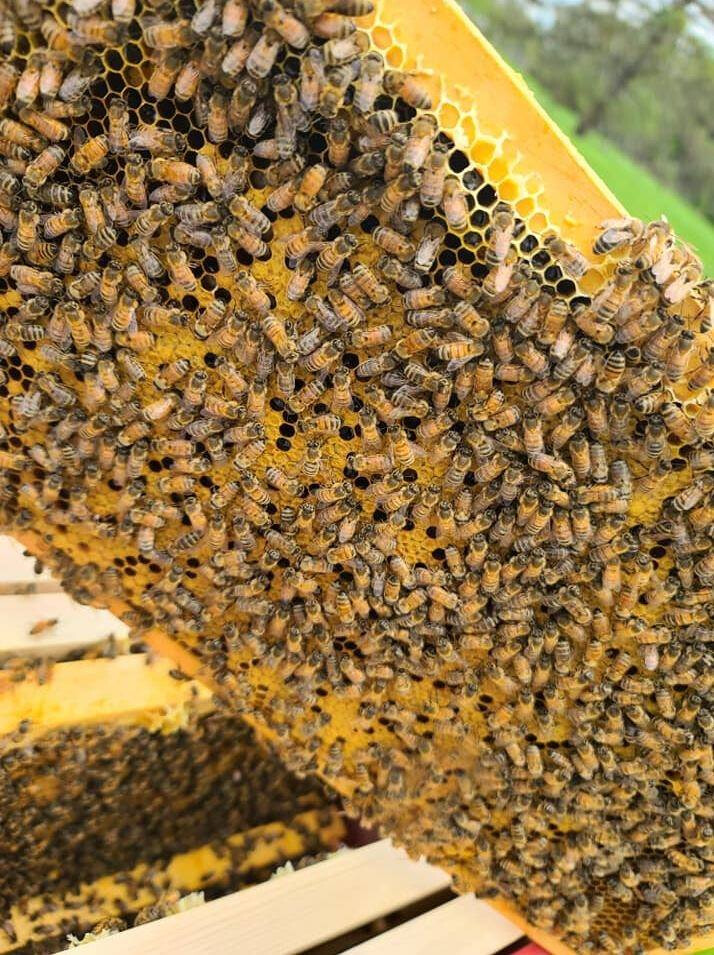Embarking on the journey of beekeeping by purchasing a package of honey bees is a pivotal step for both new and experienced beekeepers. However, timing is everything in the world of apiculture. Knowing when it might be too late in the season to purchase a package of honey bees is crucial for the success of your hive, the health of your bees, and the productivity of your beekeeping endeavors.
One of the challenges that new beekeepers face is timing – when do you buy packages of bees here in Ohio? Some, if not many, beekeepers rush to purchase their first three pound package of honey bees – we understand why, beekeeping is thrilling and it is fun.
The challenge though is that too early and those bees may not make it, and of course if it’s too late then you might miss the entire season.
Understanding Beekeeping Seasons
Beekeeping is inherently seasonal, with each part of the year playing a different role in the lifecycle of your hive. Spring is typically the ideal time to start a new hive because it gives bees the entire season to build up their colony, gather resources, and prepare for winter. By the time summer rolls around, the colony should be strong and well-established, capable of taking full advantage of the flowering season to collect nectar and pollen.
Recognizing the Cut-off Point
So, when is it too late? While the answer can vary based on your location and local climate, a general rule of thumb is that purchasing a package of honey bees late in the summer or at the onset of fall can be too late for the season. This period leaves insufficient time for the newly formed colony to establish itself, gather necessary resources, and strengthen sufficiently to survive the winter.
Considerations for Late Season Start-ups
- Resource Availability: Flowers and plants are less abundant in late summer and fall, making it harder for bees to find the nectar and pollen they need to survive and prepare for winter.
- Colony Strength: A strong colony is more likely to survive the winter. Starting late in the year doesn’t give the bees enough time to build their numbers and store the energy reserves they need.
- Winter Preparation: Bees spend the warmer months preparing for winter. A late start means there’s less time for them to create the honey stores necessary to get through the colder months.
- Beekeeper Intervention: While feeding and other supportive measures can help a late-start colony, they can also be more labor-intensive and less certain in terms of success.
Exceptions and Considerations
In some warmer climates where winters are milder, the window for starting a new hive may extend later into the year. However, this does not eliminate the challenges associated with late starts, such as reduced availability of natural food sources and the need for increased beekeeper intervention.
Strategic Planning for Late Decisions
If you find yourself considering starting a hive later in the season, strategic planning becomes even more crucial. This may involve preparing to feed your bees more extensively over the winter and closely monitoring their health and the hive’s stability. Additionally, researching and choosing bee species known for their hardiness and ability to adapt to less-than-ideal conditions can also make a difference.
Conclusion
Timing your purchase of a honey bee package with the natural cycle of bee activity and seasonal changes is essential for the success of your hive. While late starts are generally discouraged due to the challenges they present, understanding your local ecosystem, being prepared for increased management, and choosing resilient bee species can help mitigate these risks. For most, waiting until the following spring to start fresh with a new colony when conditions are more favorable is often the wisest choice, ensuring the health and productivity of your bees.
In determining what type of startup you should obtain, take a look at our FAQ on Ohio package bees vs Ohio nuc colonies. We have both nucs and honey bee packages for sale in Ohio, we are a real apiary – not a wholesaler states away.

